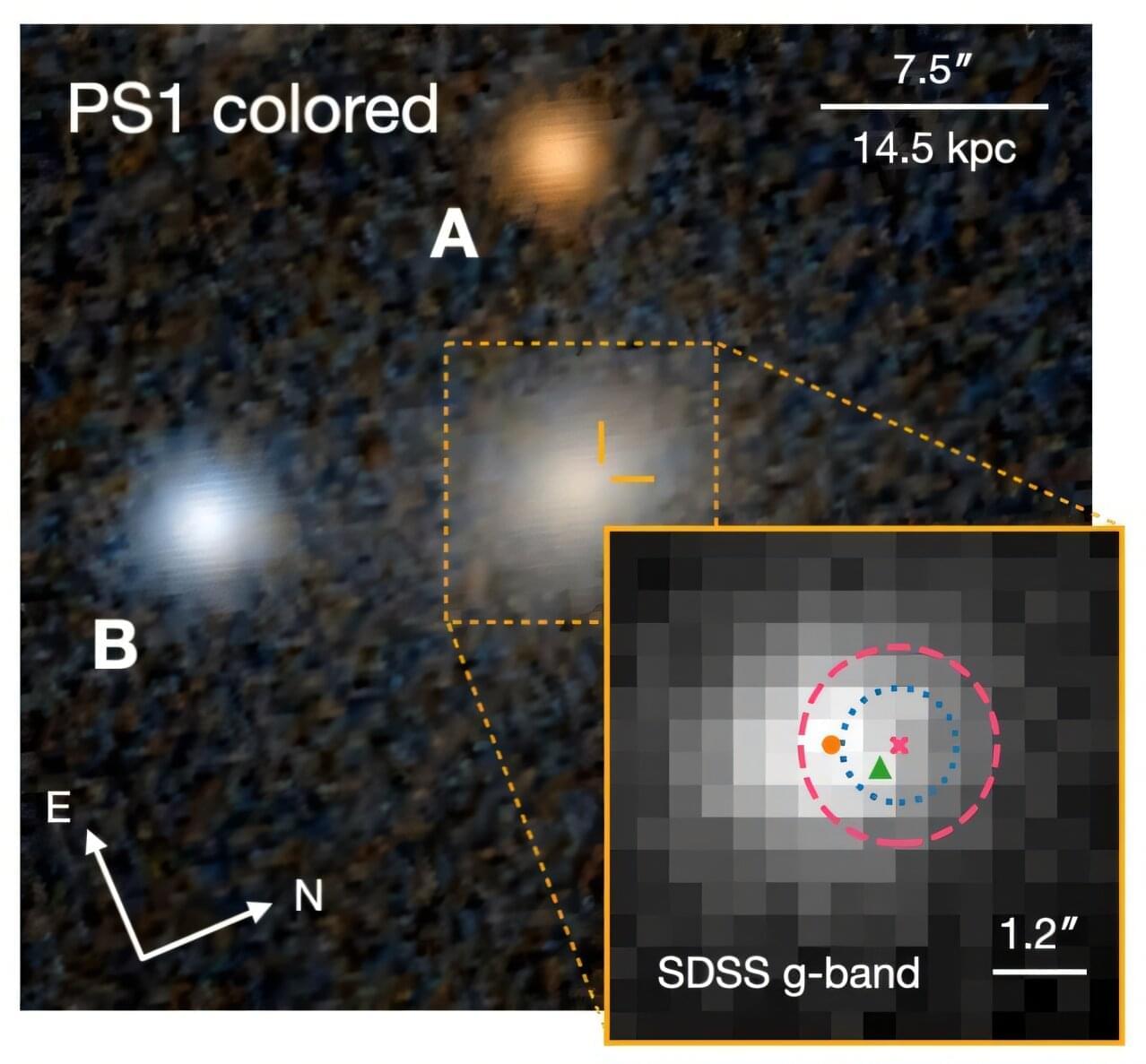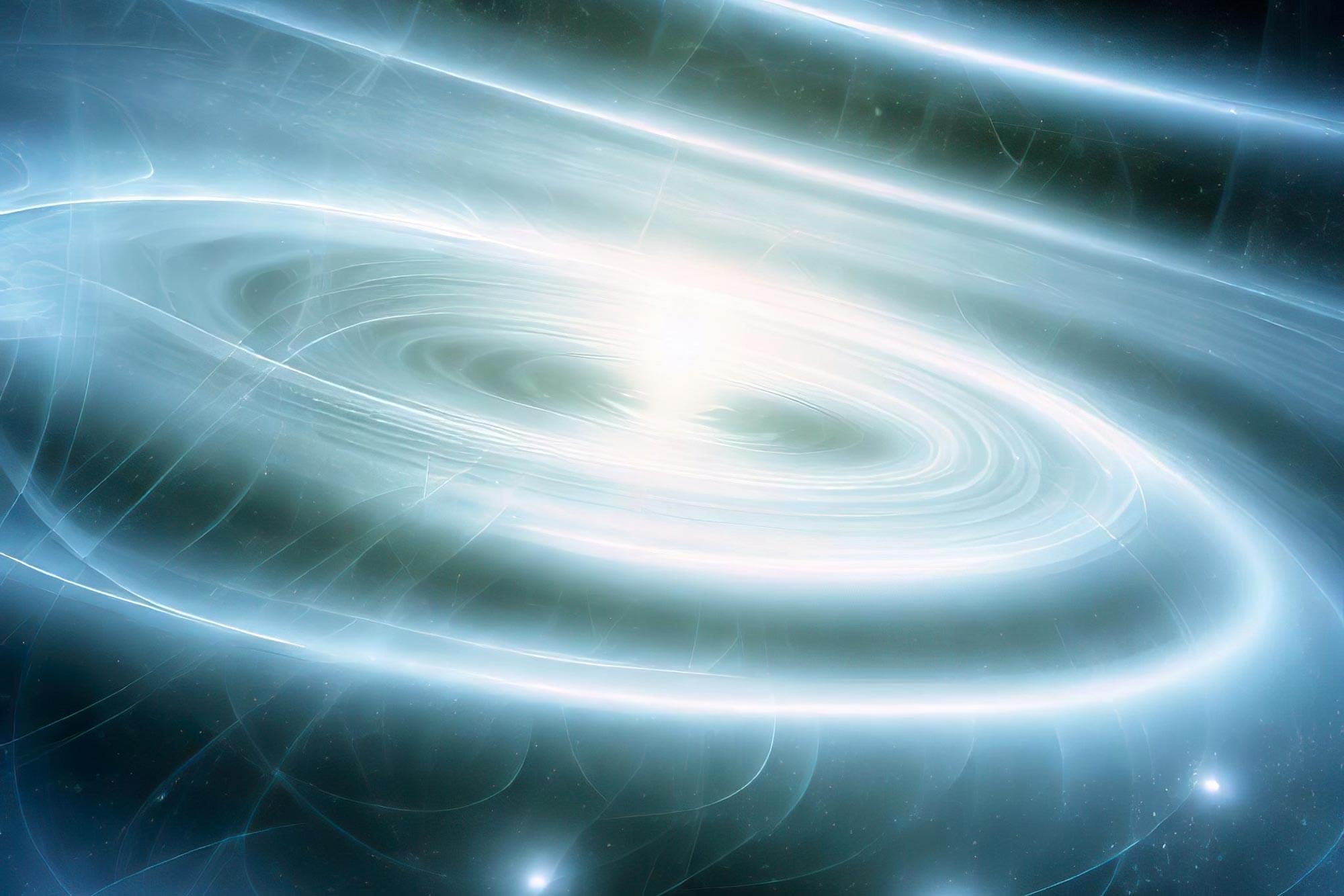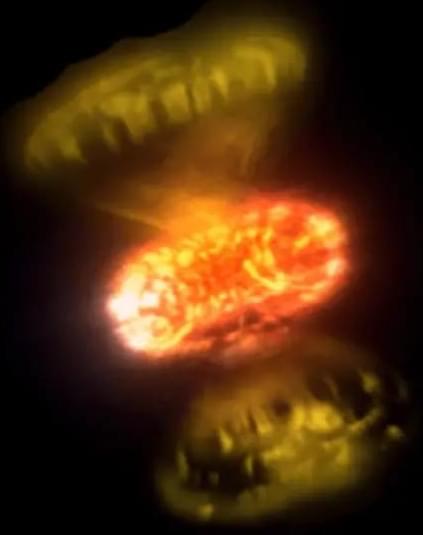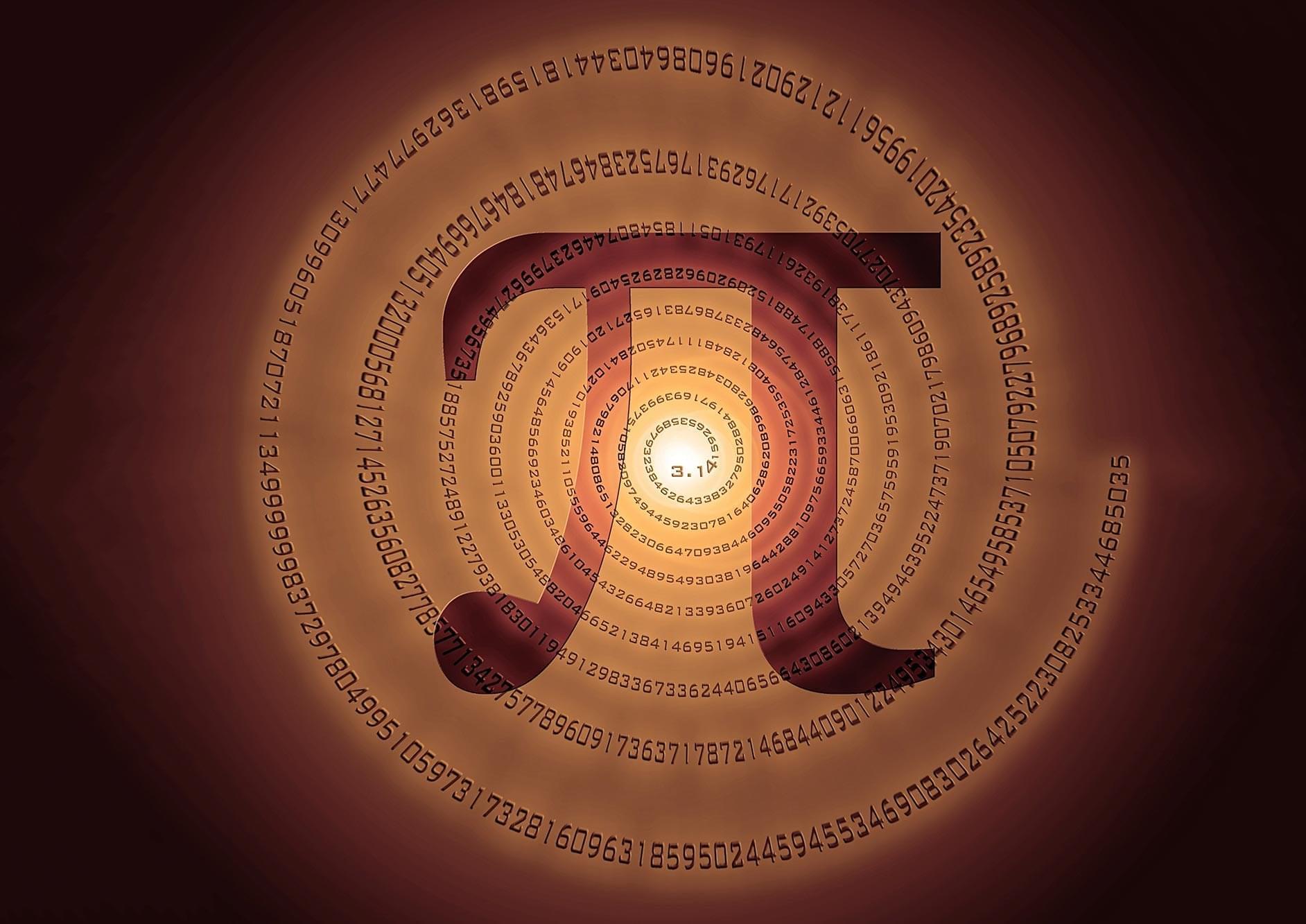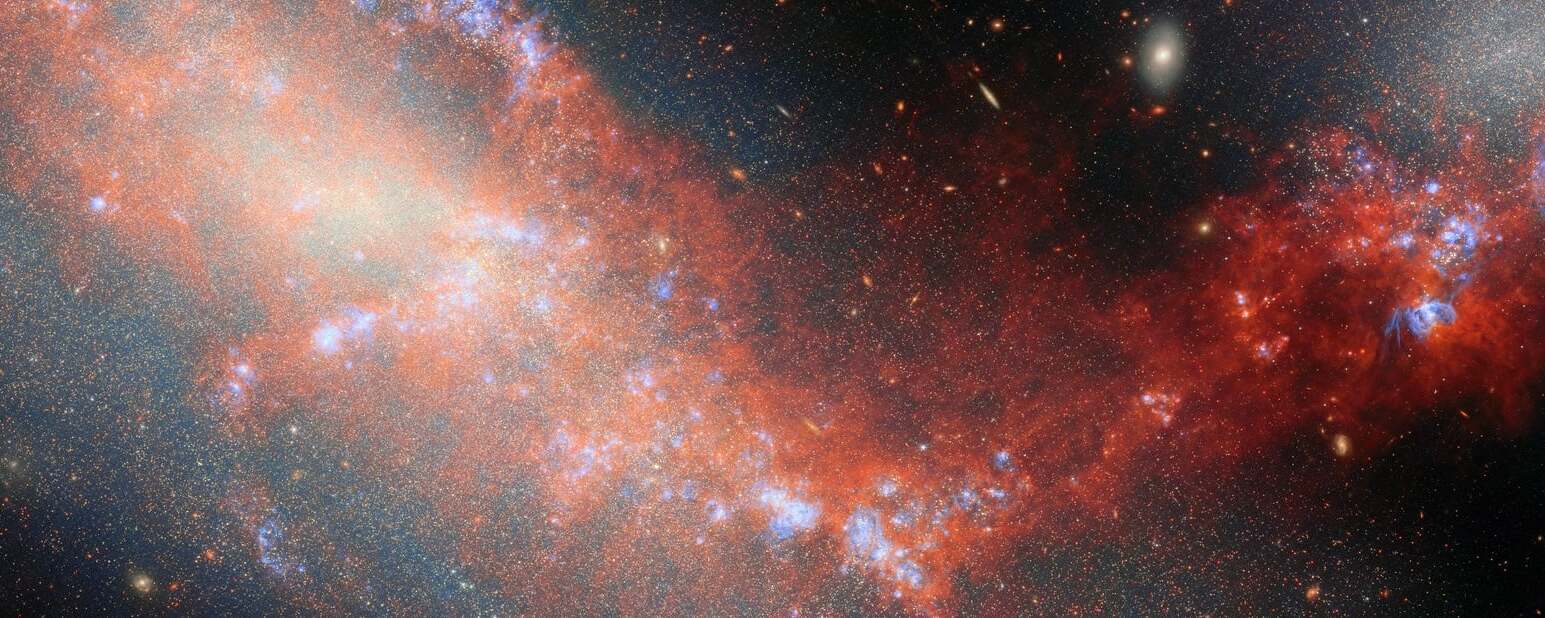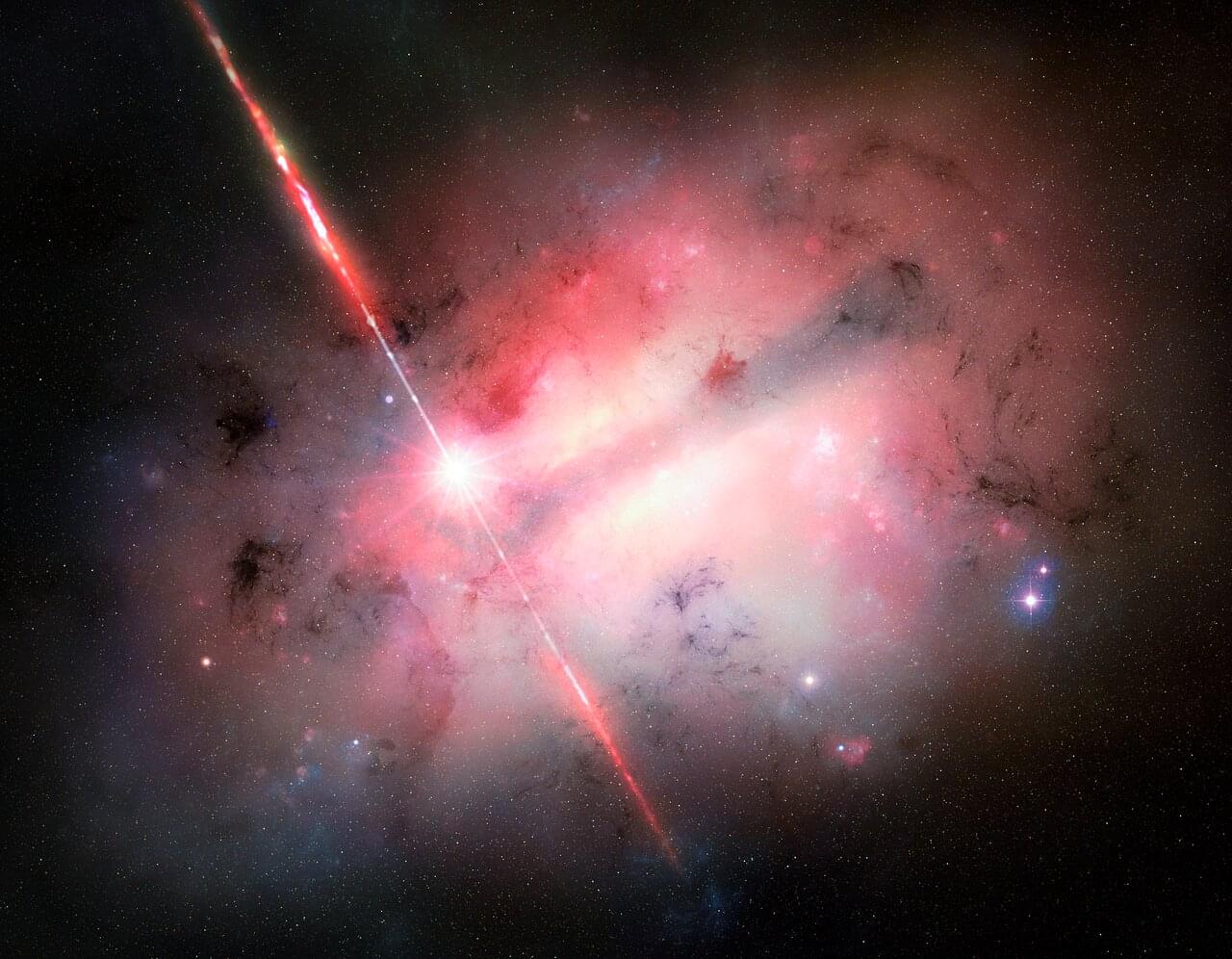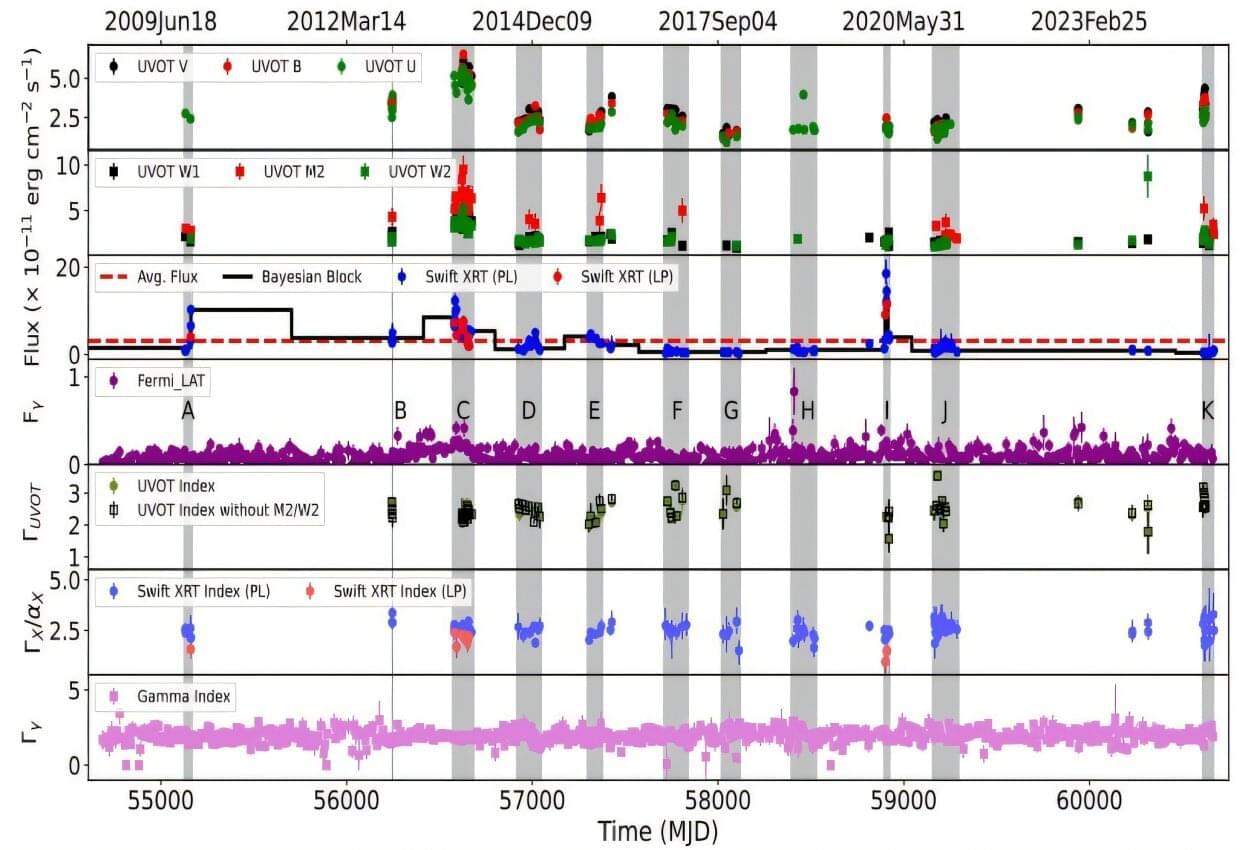An international team of astronomers has investigated a short-lived optical flare designated AT2022zod. As a result, they found evidence indicating that this flare is an unusual tidal disruption event. The findings were presented in a research paper published Dec. 1 on the arXiv pre-print server.
When a star passes close enough to a supermassive black hole and is pulled apart by the black hole’s tidal forces, it triggers the process of disruption, which is known as a tidal disruption event (TDE). Afterward, the tidally disrupted stellar debris starts raining down on the black hole, and radiation emerges from the innermost region of accreting debris, which is an indicator of the presence of a TDE.
